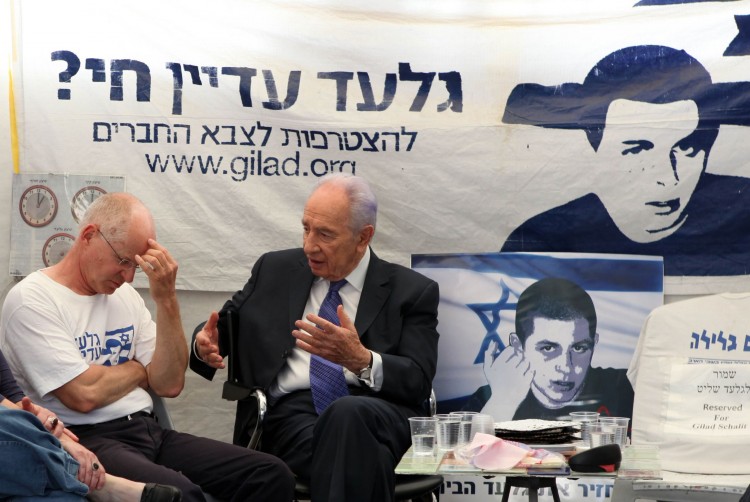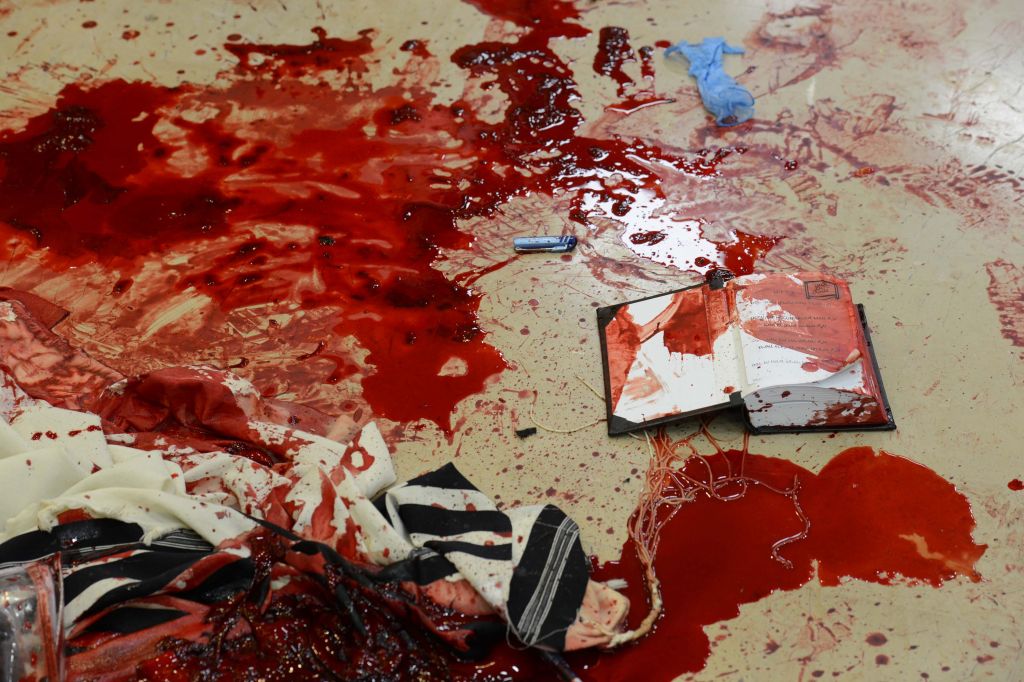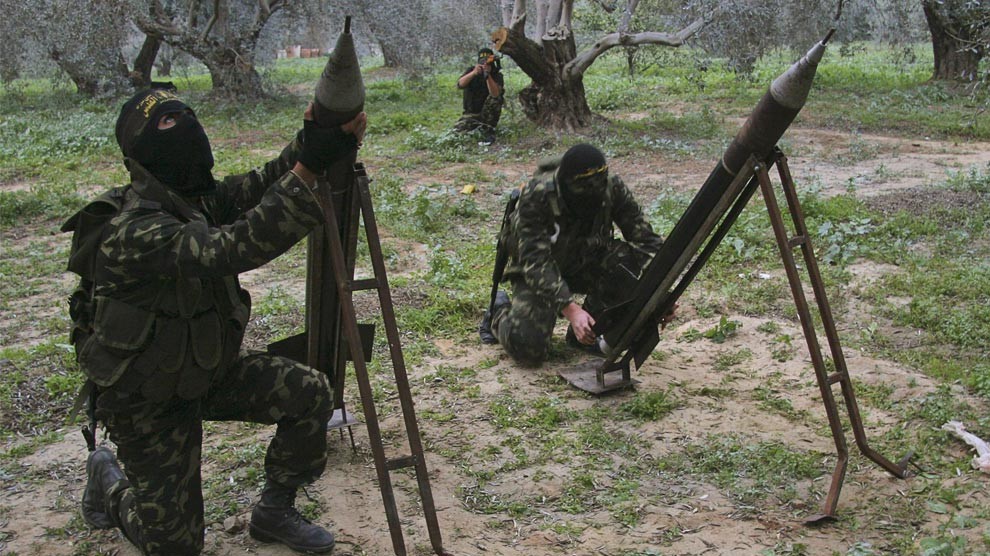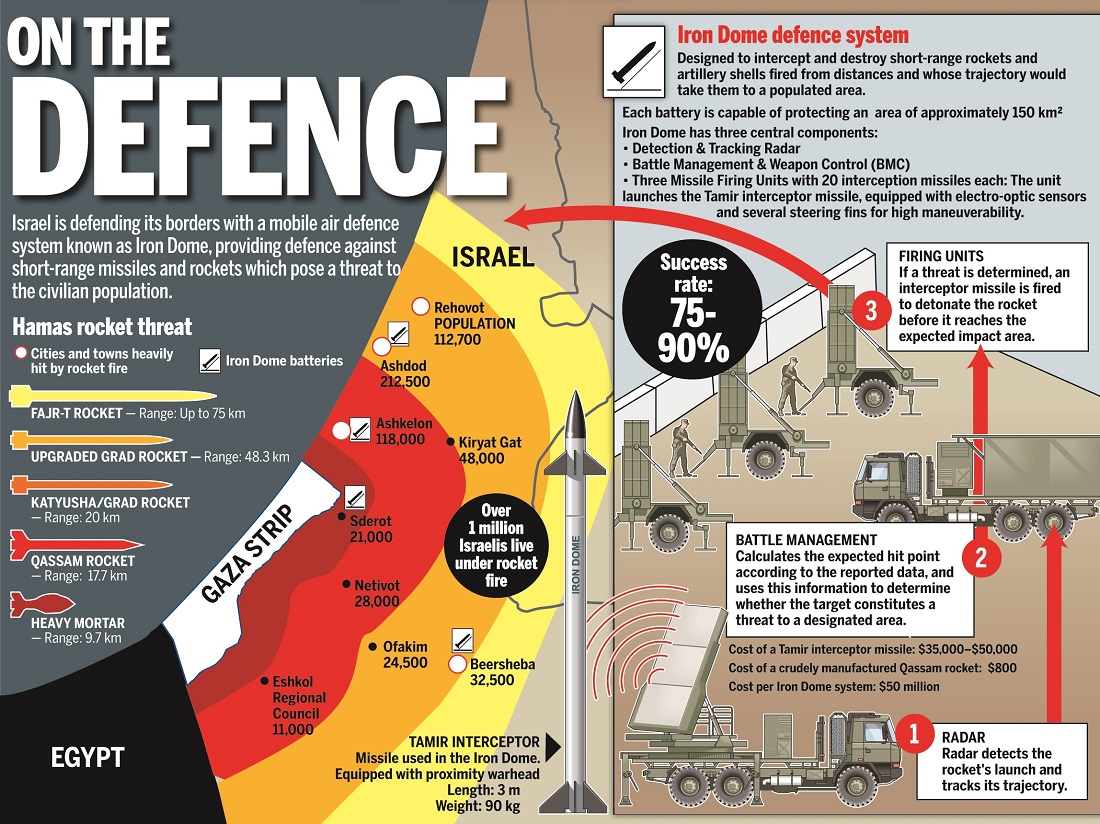The Trauma of the Shalit Exchange
Much has been written of the Israeli moral commitment not to leave a wounded or dead soldier in the field, but of late, many are beginning to question the wisdom of trading a thousand Palestinian terrorists for a single Israeli hostage. While the release of Gilad Shalit after five years in Hamas captivity is indeed a moral issue for Israelis, it is also an emotional and psychological dilemma that has triggered national soul-searching over whether to negotiate with a terrorist organization (Hamas), and how high a price must be paid for one soldier’s freedom given the strategic, national and security implications that arise from such an exchange.
On one side of the equation, the Shalit case represents the classic struggle between heart and mind. The issue tears at the national and religious fabric of the Jewish state. The concept of pidyon shvuyim, or the redemption of captives, is a religious imperative for Judaism, with deep roots based upon centuries of profound suffering. Historically, Jewish communities in the Diaspora have reduced themselves to poverty to save hostages and they have done so with the approval of their religious authorities.
But this moral imperative to protect its sons and daughters at all costs is today tempered by the fear of releasing Palestinian terrorists who will most likely return to murder again as happened after the 1985 Ahmed Jibril terrorist exchange that led to the first Intifada and the deaths of one hundred and seventy-eight Israelis. According to the head of Israel’s domestic intelligence agency (Shin Bet), Yoram Cohen, sixty per cent of those released in prisoner swaps return to activity in terrorist organizations.
Objectively speaking, Israel can expect to pay a terrible price for this exchange given that the deal involves reducing the life sentences of two hundred and eighty mass murderers responsible for the deaths of hundreds of Israelis, almost all of them civilians, most of them within Israel during the 2000-2004 Second Intifada. As Hezbollah’s Nasrallah put it after a similar exchange in 2004: “We have discovered how to hit the Jews where they are the most vulnerable. The Jews love life, so that is what we shall take away from them. We are going to win, because they love life and we love death.”
Given the ramifications of the deal, there can be no moral or practical justification for such an exchange. Virtues such a morality have their defects, and the line between the moral imperative to free Shalit and the necessity of protecting the nation from future Palestinian terrorist attacks is a thin one.
Should the deal unfold as planned, one notion that will be hard to dispel would be that if Israel could reach a deal with Hamas over Shalit, it would mean that an organization dedicated to Israel’s destruction is basically pragmatic and open to bargaining. We will inevitably begin hearing parallels between Hamas and the IRA and the possibility of a Middle East “Good Friday” Agreement with Israel. That delusion will lead the mainstream media to conclude that because Israel negotiated with Hamas (albeit through an intermediary), these terrorists now deserve a diplomatic upgrade. That upgrade will begin by playing down the horrific nature of the crimes and personalities of the Palestinian terrorists released, and playing up the “joy” of these terrorists being re-united with their tearful families.
At the same time, Israel’s enemies will know that hostages are their best investment. Hamas, Hezbollah, and other terrorist groups will have every incentive to capture Israelis, dead or alive, and barter them. It will also lead them to the conclusion that force (that is, the taking of hostages) produces faster results than political negotiations through international bodies like the UN, and will validate their belief that they can obtain the release of another thousand murderers by kidnapping and holding another Israeli for ransom.
While the life of Gilad Shalit and the horror he must have experienced in his years of captivity cannot be minimized, his release under these circumstances not only represents a threat to the Israeli nation, but an insult to the families of other Israeli victims of Palestinian terrorism who believe that it is wrong to negotiate with terrorists, let alone release them to murder again.
The release of these terrorists, many of whom are serving multiple life sentences for planning and implementing high-casualty suicide bombings will bring no comfort to the families of Sasson Nuriel, Ofra Felix and Ori Shahor who were murdered by Palestinian terrorists in 2005, or to the family of Nachshon Wachsman – a soldier who was kidnapped and murdered by Hamas in October 1994, or to the families of the thirty victims who perished in the Passover Seder suicide bombing attack at the Park Hotel in Netanya in May 2002, or to Bentzi Ben-Shoham, whose sister was killed in the 2002 Palestinian terrorist attack at Caf? Moment in Jerusalem, or to the families who had to bury what was left of their loved ones after the August 2001 Sbarro restaurant suicide bombing in Jerusalem.
The pain is especially deep given that the unrepentant Sbarro murderess, Ahlam Tamimi, who drove the suicide bomber to that restaurant and other Palestinian terrorists involved in the above murders are among those to be released including the mastermind of the Bus 405 Tel Aviv-Jerusalem attack in 1989 that claimed sixteen lives; Khalil Mohammed Abu Ulbah, who on Feb. 14, 2001, used a bus to run over a group of female soldiers near the Azor Junction killing eight and wounding twenty-six; the Palestinian terrorist who killed ten Israelis in Wadi Harmiyeh north of Ramallah in 2002; Mohammed Shratkha, the leader of a Palestinian terrorist cell that captured and murdered Israeli soldiers Ilan Sa’adon and Avi Sasportas; Fadi Ibrahim, the mastermind of the bus bombing in 2003 in the northern city of Haifa that killed seventeen people; Ibrahim Younis, who planned a 2003 suicide bombing in Jerusalem that killed seven people including an American-born doctor and his daughter who were celebrating on the eve of the young woman’s wedding; and Abdel Aziz Salha who raised his bloody hands to a cheering crowd after murdering two Israeli soldiers who accidentally drove into the West Bank city of Ramallah in 2000.
There would be some justice, perhaps, if the release of these murderers signified an end to further kidnappings and acts of Palestinian terrorism, but that will not be the case. Hamas leaders have already said so. According to Mahmoud al-Zahar, “Neither the liberation of the Gaza Strip nor the liberation of the West Bank or even Jerusalem will suffice us. Hamas will pursue the armed struggle until the liberation of all our lands. We don’t recognize the State of Israel or its right to hold onto one inch of Palestine. Palestine is an Islamic land belonging to all the Muslims.”
To the Israelis who value life above all else, the Shalit affair is a moral issue that carries frightening practical consequences, but to Israel’s enemies, it is a vindication of their strategy, guarantees future kidnappings and murders of Israeli civilians, and constitutes a victory for the jihadists not to mention a betrayal of those who have lost loved ones to terrorism and who must now watch the jubilation of these serial killers as they are set free and welcomed as heroes on the Arab and Palestinian street.Palestinian terrorists now know that it is simply a matter of time before they will be freed in the next deal for the next kidnapped Israeli, and that a life sentence can be translated into how many years it takes for the Israeli government to give in to blackmail. At a news conference in Damascus, Hamas’ political chief, Khaled Meshaal vowed to continue efforts to kidnap Israeli soldiers to obtain the release of more “prisoners”. The Shalit abduction was not the last, he said: “We got 1,027 out of jail and we’ll recover the remaining 8,000 too.”
Arabic media reacted to the proposed exchange with almost unanimous celebration. Filastin, the Hamas newspaper in Gaza, ran a giant picture of Palestinian children raising their fingers in a victory sign and waving green Hamas flags, under the headline: “The Resistance Wins and Breaks the Occupation’s Handcuffs.”
Giulio Meotti summed up Israel’s dilemma on Arutz Sheva (Israel National news) when he wrote:
“Next week, when most of the Israelis will share the Shalits’ joy and concern about the mental health of their son, let’s hope that many others will remember the aftermath of the suicide attacks – the victims arranged near the carcass of the bus, the bodies placed in black bags, the Polaroid photos, the remains of a stroller, the scattered gray matter on the windows nearby, the Nazi number tattooed on burned arms, the acrid odor of burned flesh and hair, the teeth and the DNA by which the victims were identified, the little pieces of jewelry that were everything a mother found at the morgue, the school notebooks, the military berets, the tennis shoes, the kippot of every color and the officers’ insignia.”
History offers some powerful insights on this. A week after British Prime Minister Neville Chamberlain signed his infamous Munich Accord with Hitler, Winston Churchill addressed the House of Commons with this caution:
“This is only the first sip, the first foretaste of a bitter cup that will be proferred to us year after year unless, by a supreme recovery of moral health and martial vigor, we arise again and take our stand for freedom as in the olden time.”
Churchill’s admonition remains relevant today. Israel is confronted by enemies whose foot soldiers are driven by a religious hatred so intense that they will not be satisfied with anything less than vanquishing it. They regard Israeli peace overtures as a sign of weakness. They have nothing but contempt for Jews who advocate “land for peace.” They will not honor any form of agreement a moment longer than it suits their needs, and their contempt for human life inevitably leads them to commit atrocities. How better to encourage these fanatics who believe that nothing can stand in their way, than to fail to stand in their way. Israel, by operating from what is essentially a defensive strategy based on targeted reprisals for terrorist attacks, erecting security barriers to protect its population, and reliance on an anti-missile defense shield is doing just that. It has told its enemies, by its inaction, that it is on the run, exhausted, unwilling to fight, afraid to resist, and ready to capitulate.
Years ago, Gen. Moshe Dayan, then the Minister of Defense, said: “Israel must be seen as a mad dog; too dangerous to bother.” Hamas and Islamic Jihad must be convinced that they will be crushed by devastating military action should they conduct further kidnappings, missile attacks on Israel’s towns or cities, or more terrorist attacks against the Jewish state. If any of these red lines are crossed, Israel must re-conquer Gaza and destroy their terrorist infrastructures. Israel’s security is based on its willingness to use overwhelming force against such enemies. You can scare a wolf pack away for a time by firing into the air or by occasionally retaliating, but eventually the predators realize how the game works, and they either work their way around your position or just charge. For Israel to survive, the hunters must become the hunted. If Israel continues to show restraint, the wolves will have their way. Churchill was right. There will be no peace without victory.




